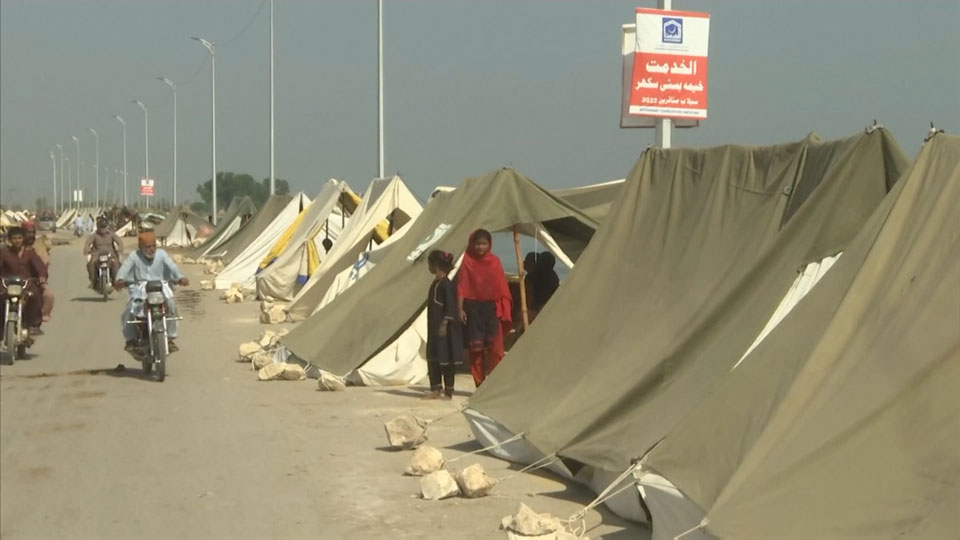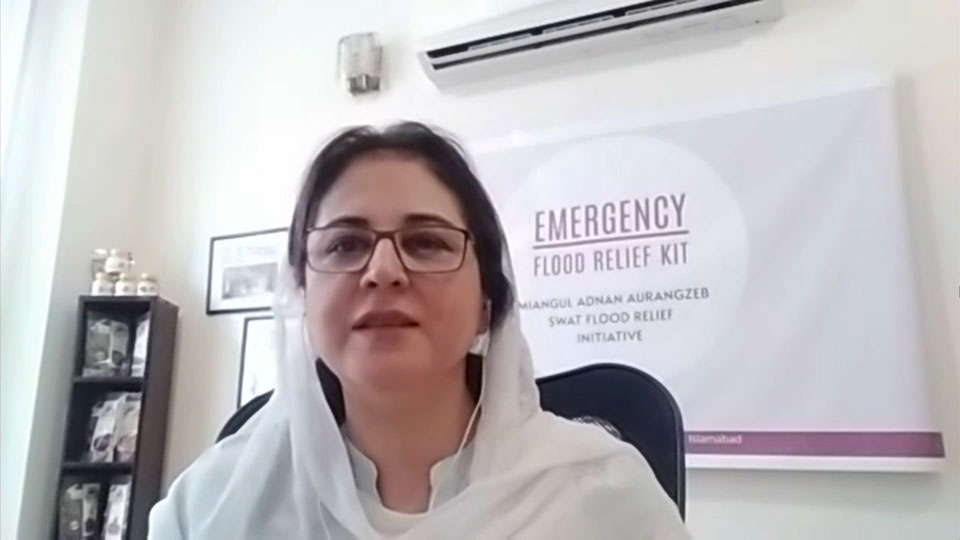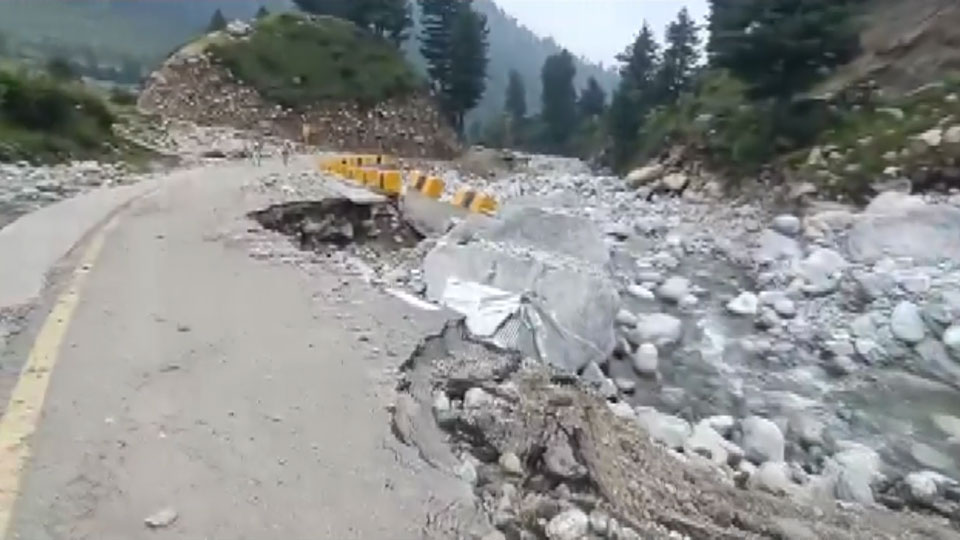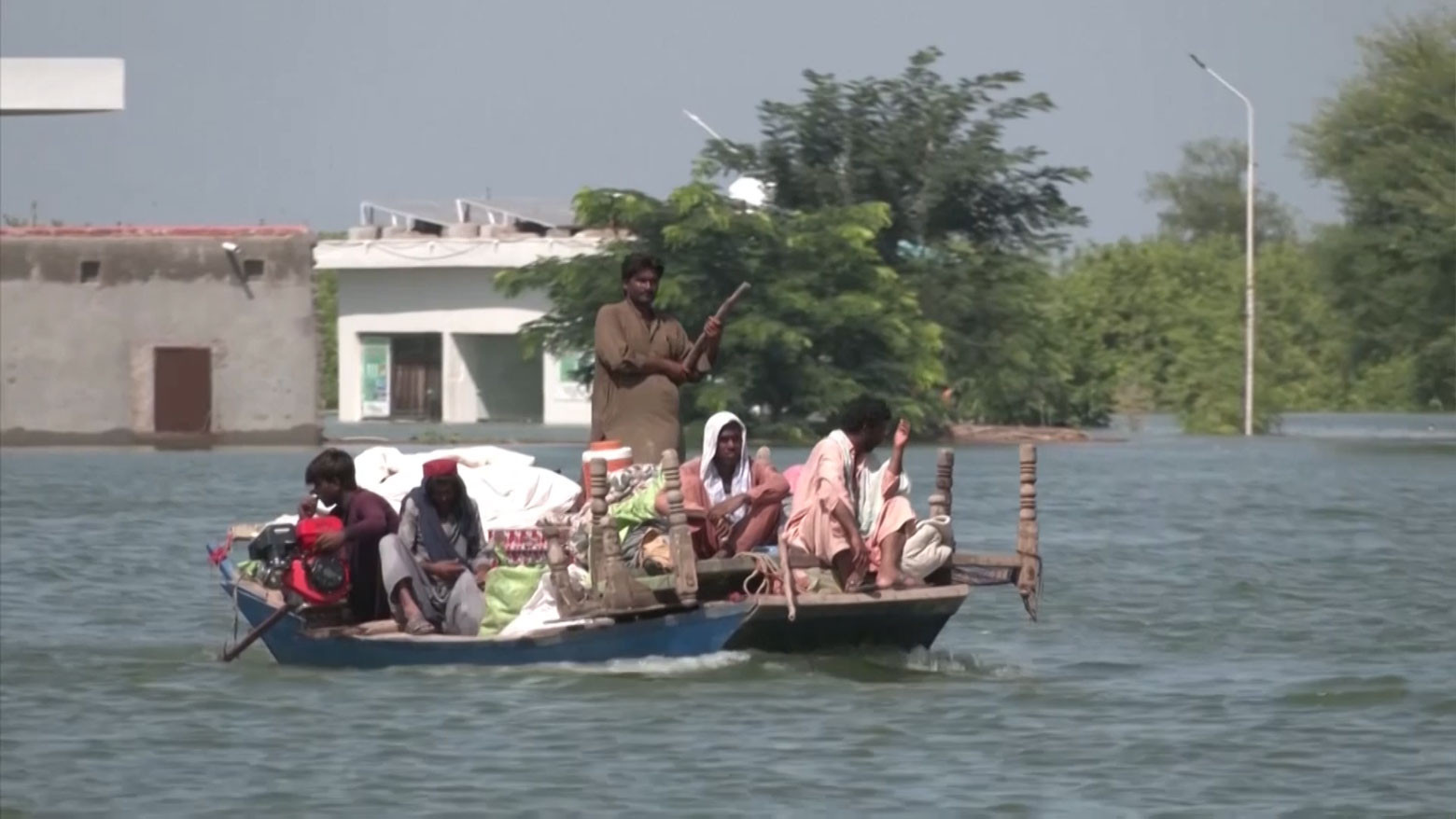An unprecedented disaster
Continuous rain since mid-June has brought catastrophic damage to Pakistan. Rainfall for August was nearly three times that of an average year. Officials say as of September 5th, more than 1,300 people had died in floods and related disasters. Roughly a third of the dead are children.

Nearly 1.7 million houses have been reported damaged, with one-third of them completely destroyed. The climate change minister said as of August 30, a third of Pakistan’s land area lay submerged. More than 33 million people are affected.
Swat District, northern Pakistan
The crisis is nationwide. Zenab Adnan, a leader of aid organization Miracles Trust, says staff are working especially hard in Swat District, a mountainous region in the country's north. She says about 70 percent of Swat's people depend on agriculture, and their farmlands have been ruined. "People cannot grow crops anymore," she says. "The orchards are gone. That's their livelihood."

Adnan says many bridges and roads have also been destroyed, preventing the movement of vital aid.
Crisis deepens as winter looms
As bad as things are in Swat, Adnan is worried about what's to come. The north will start getting cold in October, and snow will begin falling from November.
"The snow will continue until April, and some of it will be very deep," she says. "We need immediate support in such forms as pre-fabricated housing."
Adnan is also calling for international assistance to solve the transportation problem. Pakistani military engineers have rigged makeshift bridges of rope and wood. But she says these will not be enough to carry food and relief goods in winter. "We need steel bridges," she says.

Pakistan needs long-term global interest and support
Other countries are in the early stages of responding. The United Nations aims to raise $160 million in aid. The European Union has allocated humanitarian assistance of more than 2.1 million euros, or more than $2 million.
However, Pakistan's Prime Minister says the aid must be multiplied rapidly. Adnan adds that given its financial situation, the country cannot deal with this catastrophe on its own. She pleads not only for more aid, but technology transfers, "to teach us and help us to deal with this." The road to reconstruction will not be months, but years. She asks the world to keep paying attention to Pakistan.

